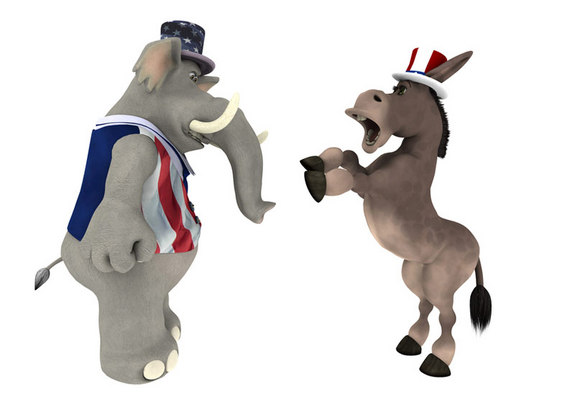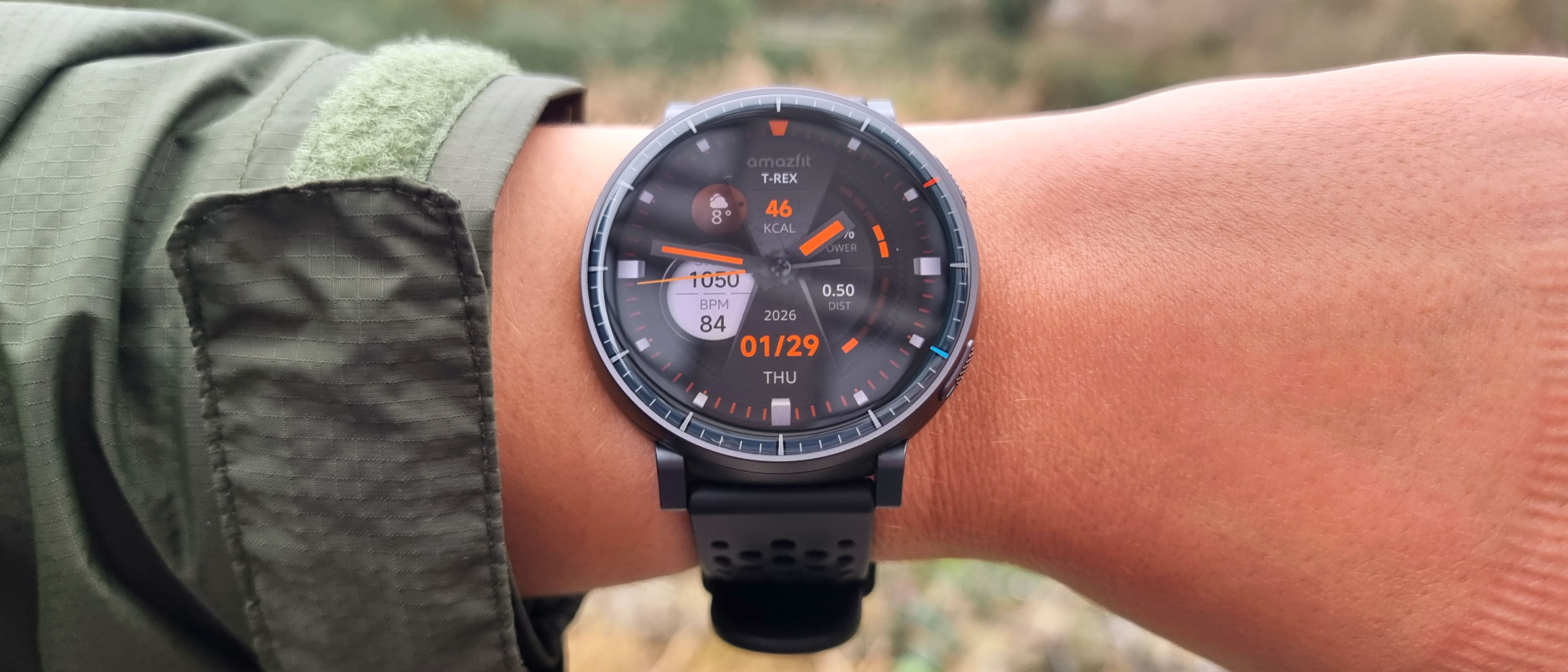
Political Polarization? Sure, But Study Reveals Hope (Op-Ed)

Get the world’s most fascinating discoveries delivered straight to your inbox.
You are now subscribed
Your newsletter sign-up was successful
Want to add more newsletters?

Delivered Daily
Daily Newsletter
Sign up for the latest discoveries, groundbreaking research and fascinating breakthroughs that impact you and the wider world direct to your inbox.

Once a week
Life's Little Mysteries
Feed your curiosity with an exclusive mystery every week, solved with science and delivered direct to your inbox before it's seen anywhere else.

Once a week
How It Works
Sign up to our free science & technology newsletter for your weekly fix of fascinating articles, quick quizzes, amazing images, and more

Delivered daily
Space.com Newsletter
Breaking space news, the latest updates on rocket launches, skywatching events and more!

Once a month
Watch This Space
Sign up to our monthly entertainment newsletter to keep up with all our coverage of the latest sci-fi and space movies, tv shows, games and books.

Once a week
Night Sky This Week
Discover this week's must-see night sky events, moon phases, and stunning astrophotos. Sign up for our skywatching newsletter and explore the universe with us!
Join the club
Get full access to premium articles, exclusive features and a growing list of member rewards.
Seth Shulman is a senior staff writer at the Union of Concerned Scientists (UCS), a veteran science journalist and author of six books. This op-ed, and Shulman's other Got Science? Columns, can be found on the UCS website. Shulman contributed this article to Live Science's Expert Voices: Op-Ed & Insights.
There's no question that hyper-partisanship has served as a major impediment to science-based decision-making in recent years, especially in Congress. But are Americans' views really as polarized as our national politics suggest? New data from the Pew Research Center reveal some illuminating — and heartening — surprises on the subject.
But first, the bad news.
Polarization on the rise
Most of the headlines about Pew's study (the first of a planned series of five on the subject) emphasized the discouraging main finding: In a detailed poll of more than 10,000 Americans, the researchers found more political polarization in the United States than at any time in the past two decades.
The study found that the portion of people expressing "consistently conservative" or "consistently liberal" views has grown considerably, along with a rise in what the researchers describe as "ideological silos" on both the right and left in which people are increasingly surrounded by others who share and reinforce their own views.
Meanwhile, as those shifts have occurred, animosity between the two parties also appears to have grown. Back in 1994, for instance, some 17 percent of Republicans and 16 percent of Democrats held "very unfavorable" opinions of the opposite party. Today, those numbers have more than doubled to 43 percent and 38 percent, respectively. Perhaps most disturbingly, more than a third of all Republicans (36 percent) now say that Democratic policies "pose a threat to the well-being of the country" and 27 percent of Democrats feel that Republican policies similarly pose a threat to the nation. Little wonder compromise has seemed so chronically elusive lately.
Get the world’s most fascinating discoveries delivered straight to your inbox.
But while this is where most of the reporting on the Pew study stopped, it tells only part of the story. A closer inspection reveals some considerably more interesting — and encouraging — findings.
A vocal fringe
The first thing to note is that, despite the increases in polarization, die-hard political extremists appear to still be fairly small in overall numbers. Tested on a range of political-values questions, for example, just 9 percent of Americans showed up as "consistently conservative" and just 12 percent were found to be "consistently liberal" — in other words, small fractions of the populace. The big news here is the massive middle: the Pew study reveals that a whopping 79 percent of Americans hold some mixture of views on the issues of the day.
To be sure, political views vary widely among that vast middle. As Pew's brand-new second installment tries to untangle, some 14 percent of Americans can be classified as "young outsiders," who tend to hold somewhat conservative views about the role of government but liberal views on social issues. Some 13 percent show up as "hard-pressed skeptics" who are financially stressed and generally pessimistic about the prospects for government action. And another 10 percent appear to be disenfranchised "bystanders" who tend to largely avoid political issues altogether.
Importantly, though, across most of the segments the researchers identified, solid majorities of Americans say they believe our political leaders should compromise to solve the pressing problems we face as a nation. Given these findings — and the scarcity of political compromise in Washington these days — it is little wonder that separate polling has found Congress's current approval rating among the American public at an unprecedented, historic low of around 7 percent.
Asleep in the middle
Perhaps the most important finding in the new studies is the extent to which they demonstrate a shocking "political activism gap." On measure after measure — whether primary voting, writing letters to officials, volunteering for or donating to a campaign — the Pew researchers found that there is an almost perfectly inverse relationship between politically centrist views and activism.
In other words, the more "in the middle" people's political views stand, the less involved in politics they are likely to be. All of which adds up to the best hard evidence yet of a vocal, activist fringe and an extremely large, quiescent, apathetic and/or disenfranchised middle.
A question of engagement
Recent work by the Union of Concerned Scientists (UCS) anecdotally supports the findings of a pragmatic center. On climate change, for instance, as we've reached out to citizens and local elected officials in communities from Florida to Montana, we've consistently found people across the political spectrum eager to see action to confront local climate impacts.
In Montana, our climate scientists worked with people concerned about impacts on local agriculture and what could be done about them. In Florida, we co-hosted a bipartisan group of 35 officials from Miami-Dade County who actively engaged to discuss practical responses to their growing vulnerabilities to sea level rise.
Similarly, UCS's recent report, National Landmarks at Risk, details the climate impacts happening now that are threatening iconic landmarks cherished by all Americans — places such as Jamestown and the Statue of Liberty, both threatened by storm surges and rising seas. The findings have sparked concern and action among a diverse collection of patriotic citizens across the country.
Science and democracy: A powerful combination
On global warming, as on many of the planet's most pressing issues, science and solid evidence have a crucial, foundational role to play. It bears noting that in America, especially given the recent celebration of Independence Day, science and democracy were forged together from the start. It's no accident that Benjamin Franklin, Thomas Jefferson, John Adams, James Madison and George Washington all were citizen-scientists.
As students of the Enlightenment, America's founders were committed to unleashing the power of reason to advance knowledge and to build an effective and responsive government. They understood the benefits that could come when science and democracy worked together. And they exemplified a kind of bold, American pragmatism that put problem solving above partisanship and sought to base our government's policies on the best available data and the most up-to-date understanding of the world.
It has proved a powerful partnership ever since. We need only think of how federal investments in medical research led to the successful containment of diseases such as smallpox and polio. Or how science-based laws such as the Clean Air Act have saved hundreds of thousands of lives over the past four decades by effectively reducing deadly pollutants.
The latest data from Pew paint a picture of American pragmatism that is dormant but still very much alive. As UCS President Ken Kimmell put it, "Pragmatism is at the heart of patriotism. We have a proud history in this country of rolling up our sleeves to solve problems. Now we just need more Americans to raise their voices enough to be heard by their elected officials in Washington."
Shulman's most recent op-ed was "Top 5 Signs It's Time to Stand Up for Science" This op-ed, and Shulman's other Got Science? Columns, can be found on the UCS website. The views expressed are those of the author and do not necessarily reflect the views of the publisher. This version of the article was originally published on Live Science.
 Live Science Plus
Live Science Plus





